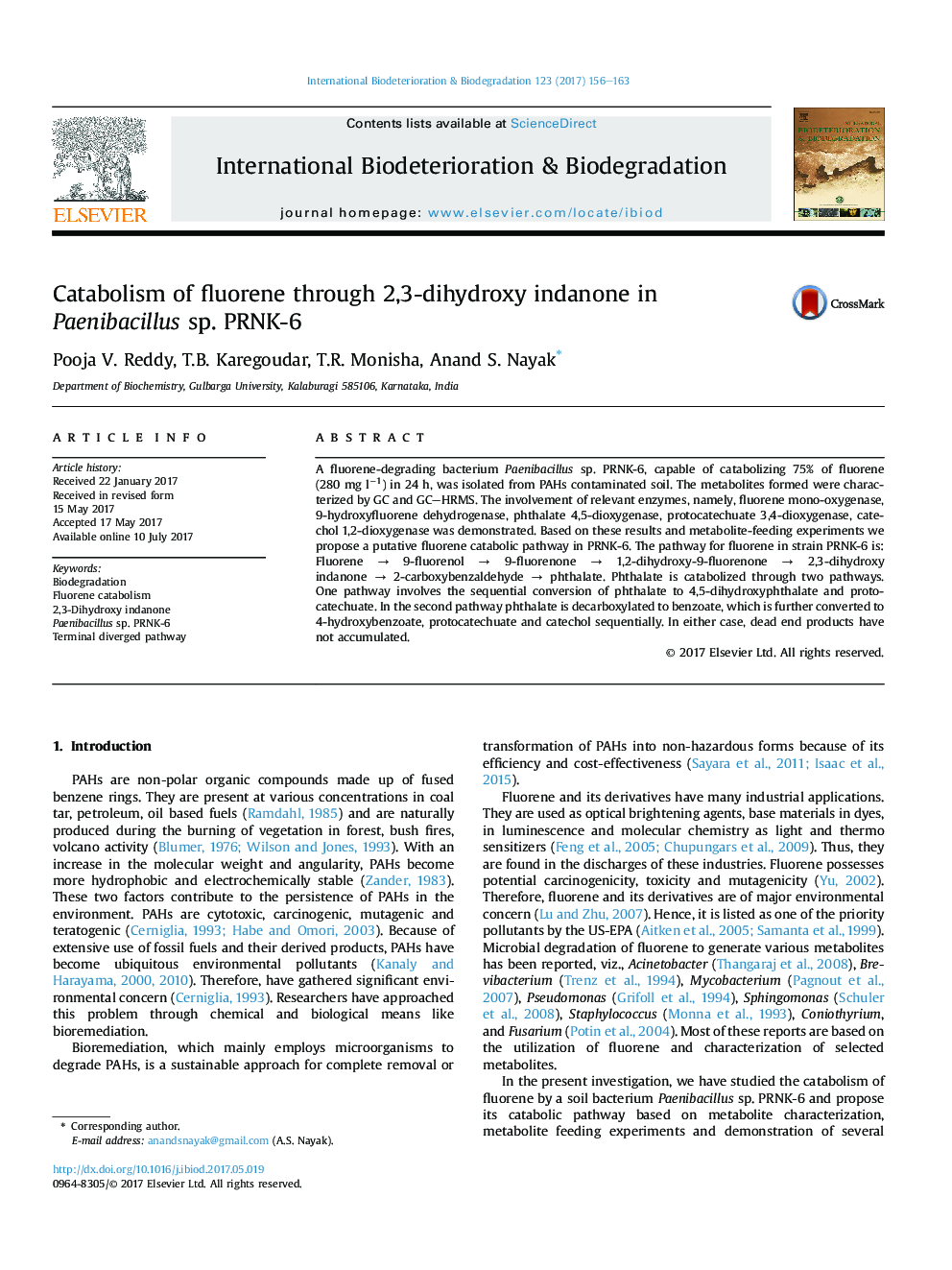| Article ID | Journal | Published Year | Pages | File Type |
|---|---|---|---|---|
| 5740263 | International Biodeterioration & Biodegradation | 2017 | 8 Pages |
â¢Based on biochemical, physiological and 16S rDNA analysis PRNK-6 was identified as Paenibacillus sp. strain PRNK-6.â¢75% of fluorene (280 mg lâ1) was degraded within 24 h by Paenibacillus sp. strain PRNK-6.â¢Strain PRNK-6 degrades fluorene through a novel metabolite 2,3-Dihydroxy indanone.â¢Down the phthalic acid, a diverged pathway was observed in the bacterial strain PRNK-6.
A fluorene-degrading bacterium Paenibacillus sp. PRNK-6, capable of catabolizing 75% of fluorene (280 mg lâ1) in 24 h, was isolated from PAHs contaminated soil. The metabolites formed were characterized by GC and GC-HRMS. The involvement of relevant enzymes, namely, fluorene mono-oxygenase, 9-hydroxyfluorene dehydrogenase, phthalate 4,5-dioxygenase, protocatechuate 3,4-dioxygenase, catechol 1,2-dioxygenase was demonstrated. Based on these results and metabolite-feeding experiments we propose a putative fluorene catabolic pathway in PRNK-6. The pathway for fluorene in strain PRNK-6 is: Fluorene â 9-fluorenol â 9-fluorenone â 1,2-dihydroxy-9-fluorenone â 2,3-dihydroxy indanone â 2-carboxybenzaldehyde â phthalate. Phthalate is catabolized through two pathways. One pathway involves the sequential conversion of phthalate to 4,5-dihydroxyphthalate and protocatechuate. In the second pathway phthalate is decarboxylated to benzoate, which is further converted to 4-hydroxybenzoate, protocatechuate and catechol sequentially. In either case, dead end products have not accumulated.
